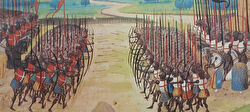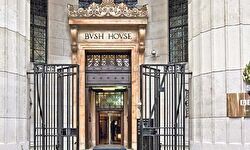
I spent last weekend in Salford, the bleak destination to which University Challenge has been exiled since so much of the television industry fell victim to asset-strippers and associated spivs. In its early days, the programme was made — rather proudly — by Granada Television, the commercial TV company in Manchester founded by the Bernstein brothers. Granada TV was almost everything you could hope for in a commercial television company. As well as Coronation Street, it produced punchy current affairs on World in Action, great documentaries such as Seven Up, and classy drams, such as Brideshead Revisited. I tried several times to get a job there, and was always rejected.
University Challenge has an innocent charm about it, amply demonstrating you don’t need to shock and insult the audience’s intelligence to get viewers. It lives or dies on the enthusiasm of slightly nerdish young people who care about knowing stuff. Of course it’s absurd — the last person to know everything died in the 18th century.
But that’s why I love it. It gives the lie to the tabloid impression that no one knows or cares about anything. I am not being falsely modest when I say that the success of University Challenge owes little to the clown reciting the questions, and much to the agility of clever young people figuring things out. We all enjoy sitting at home wondering “how on earth did they know that?” (And, less frequently, “how on earth could they not know that?”)
***
Arriving back in London, I was able to play the tiniest of parts in W1A, the BBC’s hilarious “mockumentary” depicting the idiocies of, yes, BBC groupthink. A real documentary requires a cameraman, sound recordist and director (although increasingly the director has to shoot everything himself.) The fake documentary, by contrast, demanded a crew of literally dozens. This was all to enable me to say three words — “Hi”, “No” and “Sorry” — to the actor playing the useless, fictional intern, Will. While we were filming in the lobby of the new Broadcasting House a grey-haired man walked in.
He looked like a St Andrews university divinity lecturer about to hand 38 pages of closely typed pages explaining what was wrong with Radio 4’s Thought for the Day to one of the baffled receptionists.
I was wrong. It was the new chairman of the BBC, Sir David Clementi. His first act was to approach the actor playing Will. He seemed to want to know whether he’d got a job yet.
***
Then to Washington, working on a documentary about Donald Trump’s first hundred days as president. The “100 days” notion comes from Franklin Roosevelt’s whirlwind of legislation to create a New Deal and end the Depression. It goes without saying that FDR would be appalled by Trump. To judge by the unsolicited comments of those who approached us the moment we took out the camera near the White House, so are many Americans. “Sorry about our president,” they kept on repeating. After the initial amusement, it’s a disconcerting thing to hear, and more than enough to make one grateful we have a head of state whose job is to overcome the temptation to tweet simple-minded observations splattered with exclamation marks and stick to making us feel better about ourselves.
Belief that the American system’s constitutional arrangements are superior to those of moth-eaten states like Britain is the common coin among those who’ve had tertiary education. But how wise to keep the position of national figurehead out of the hands of those who seek it to gratify their ambition.
***
I returned in time to visit the reopened National Army Museum in Chelsea. We can no longer afford much in the way of soldiery (we will shortly have an army no bigger than the “contemptible” British Expeditionary Force sent to France in 1914, and it is years since the number of admirals in the Royal Navy outstripped the total of fighting ships). But we do have money to spend on museums, so the National Army Museum has had nearly £24m of investment — nearly half from public bodies — to renovate its displays. I wasn’t persuaded by the thematic approach they’ve taken, which follows the voguish belief that there is no need for anyone to learn much, as long as you are able to “experience” something. So, for example, a Nazi pennant shares a display with a Prussian pickelhaube helmet and some of the regimental silver from the King’s German Legion, which was a unit of the British army. It was supposed to show us the changing nature of alliances, but my main experience was of confusion.
But there are still some terrific objects to see — such as a child’s shoe said to have been retrieved from a well at Cawnpore (though the 1857 Indian Mutiny itself or “First War of Independence” is poorly explained), and a branded box of second world war “Horse Shit” cigarettes.
I was keen to see the skeleton of Napoleon’s horse, Marengo. From David’s stirring painting “Napoleon Crossing the Alps” I’d expected Marengo to be a mighty charger. In fact, like his rider, Marengo looked a bit of a shortarse, who wouldn’t have looked out-of-place at a pony club gymkhana. Being a skeleton, the poor old nag has obviously seen better days, even after the makeover he’s just been given.


